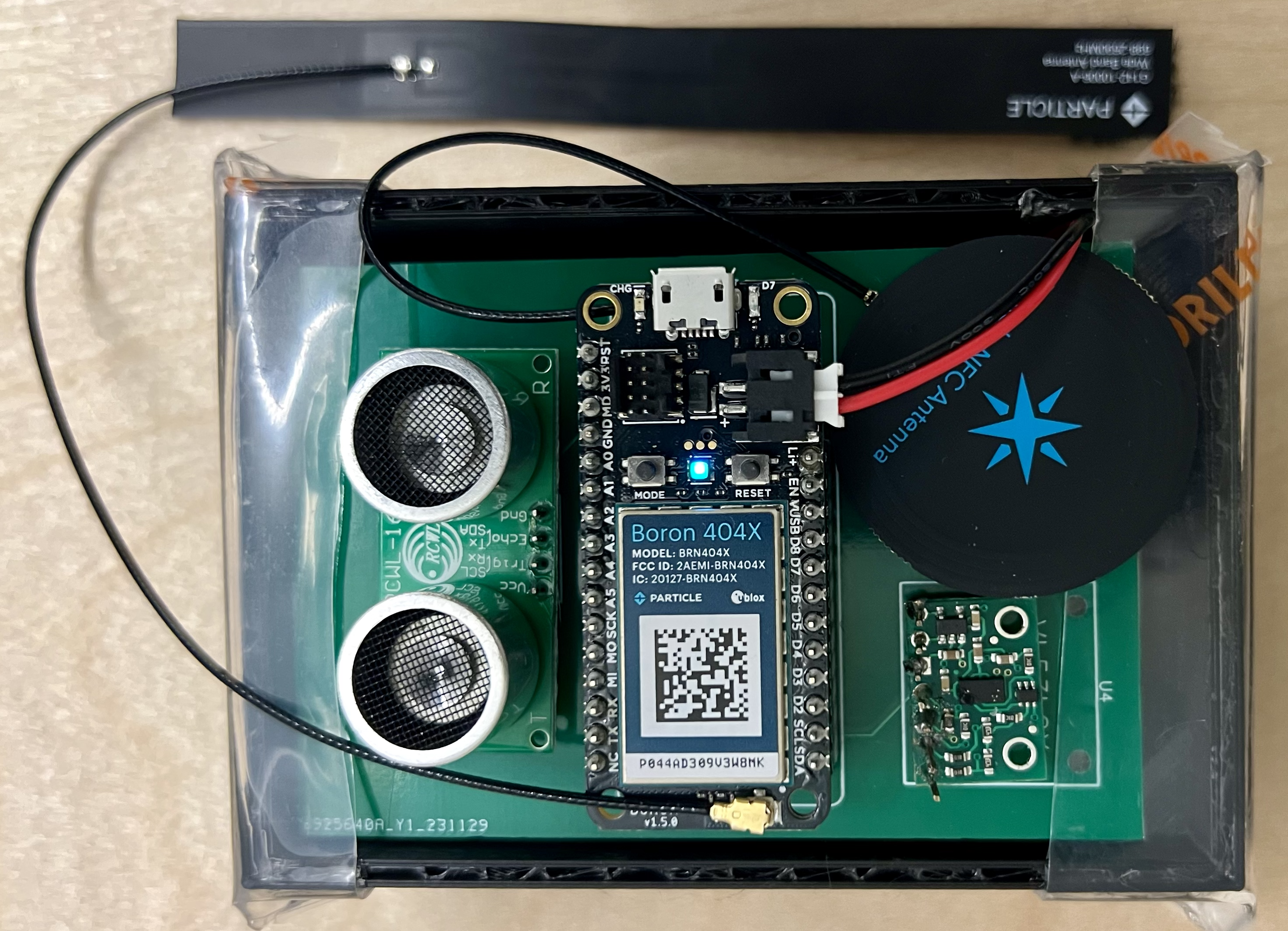SmartTrashBin
As part of the EE 542 course at the University of Washington, our team of 4 developed the Smart Trash Bin to optimize waste management. This advanced system integrates sensors and a microcontroller to accurately assess garbage bin capacity, providing real-time data to improve collection scheduling and reduce costs.

Key Features:
Real-Time Monitoring: Utilizes ultrasonic and optical time-of-flight (TOF) sensors to monitor bin fill levels with 10% accuracy, preventing overflows and optimizing collection routes.
Low Power Consumption: Employs an ultra-low power sleep mode, activating every 12 hours to transmit data, ensuring long battery life with a 3000 mAh LiPo battery.
Particle Boron Microcontroller: Central to the system is the Particle Boron microcontroller, chosen for its seamless cellular connectivity and compatibility with the sensors. It efficiently manages data transmission to the cloud.
Cloud Integration: Data is transmitted via cellular connection to the cloud, where it is analyzed and visualized for efficient waste management.
NFC Technology: Facilitates easy data retrieval and system wake-up, enhancing the ease of use for waste management personnel.
Durable Design: The system is housed in a 3D-printed box designed to withstand harsh environmental conditions, ensuring long-term reliability.
Resources:
- Code: GitHub
- Report: Smart Trash Bin Report
This project demonstrates the practical application of IoT in waste management, providing a robust and efficient solution to optimize waste collection and reduce costs.